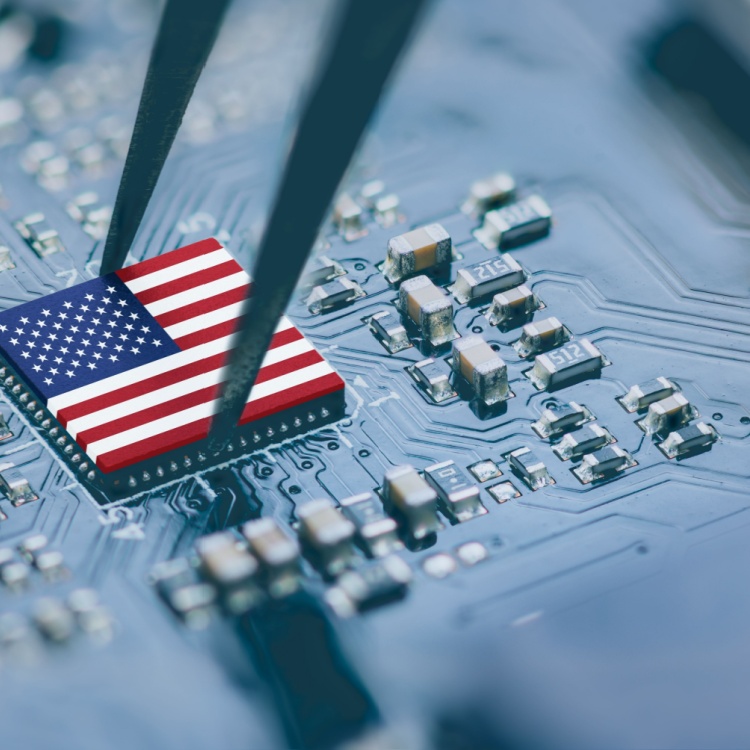Medical Mayday: COVID-19 and the Medtech Industry

Everyone, everywhere, needs them—and there isn’t enough to go around. As COVID-19 infections rapidly increase globally, how are governments and companies around the world scaling up the production of life-saving equipment during this unprecedented global health crisis?
Last August, IMI officially received certification from the Food and Drug Administration (FDA) for its UCL Ventura Flow Generator, a non-invasive ventilatory support in the management of COVID-19 patients. A continuous positive airway pressure (CPAP) solution that applies constant steady air pressure and effectively supports patients with breathing difficulties, it was designed by clinicians at University College London Hospital (UCLH) as well as mechanical engineers at University College London (UCL) and Mercedes AMG HPP. The UCL Ventura Flow Generator has been approved by the UK’s Medicines and Healthcare Products Regulatory Agency (MHRA), which is responsible for ensuring the safety, quality, and effectiveness of medicines and medical devices.
The design, production, and approval of the UCL Ventura Flow Generator is a prime example of how leaders of nations, public health, and private companies are collaborating and innovating to meet the urgent demands that the COVID-19 pandemic has created. What actions have governments around the world taken to scale up production and how can private companies with the resources and technical expertise contribute?
Emergency powers
Last March, the Spanish government declared a state of emergency, suspending the authority of governments in its autonomous regions over matters to do with public safety and health. It also requisitioned healthcare equipment suppliers and manufacturers, giving companies 48 hours to disclose any relevant supplies they have. In the same month, the United States President Donald Trump signed an emergency declaration, expanding government powers to deal with the COVID-19 pandemic. With the declaration, the federal government can utilize emergency relief funds and give more flexibility to healthcare providers by waiving certain laws and license requirements. By May, “more than half of the world’s democracies had declared a state of emergency” in response to the COVID-19 crisis.
Regulatory approvals
Last February, the United States Secretary of Health and Human Servcies (HHS) issued a public health emergency declaration that enabled the Food and Drug Administration (FDA) to issue an emergency use authorization (EUA). The measure “authorizes the emergency use of an unapproved drug, an unapproved or uncleared device, or an unlicensed biological product; or an unapproved use of an approved drug, approved or cleared device, or licensed biological product, provided that other statutory requirements are met.” With this regulatory statute, medical technology companies can help in the fight against COVID-19 by expediting the availability of products and technologies to healthcare providers.
Domestic manufacturing of medical devices
With the disruption of the global supply chain caused by travel bans, factory closures, and nationwide lockdowns, many nations have increased their domestic manufacturing of critical medical devices.
“From a risk-analysis perspective, relying on imports of essential medical devices is a serious threat to public health security,” says Tina Deng, Senior Medical Devices Analyst at GlobalData. “GlobalData expects a noticeable trend towards moving from a dispersed supply chain back in favor of domestic production for key medical devices.”
Companies pivoting and collaborating
All over the world, perfume and distillery companies are manufacturing hand sanitizers while fashion houses are producing personal protective equipment (PPE). In both the United States and the United Kingdom, the government has called on the automotive, aerospace, and other tech industries to ramp up domestic production capacity. American automotive manufacturers are teaming up with medtech companies. Companies are voluntarily switching their production lines to manufacture much-needed essential supplies. Helping the overburdened global healthcare system requires a united front, and many are stepping up to the challenge.
As of this writing, there are more than 27 million cases of COVID-19 around the world. From business and education to health and employment, from how we work to how we move, the COVID-19 pandemic has drastically affected our lives. These are unprecedented times that require unprecedented measures, and those with the knowledge and resources to design and produce life-saving medical devices should come together to help the world fight this disease.
As one of the Top 20 EMS companies in the world, IMI has over 40 years of experience in providing electronics manufacturing and technology solutions.
At IMI, we believe that humanity drives technology, and we direct our passion at solutions that enhance our way of living. With more than 400,000 square meters of factory space in 22 factories across 10 countries, we are positioned to build your business on a global scale.
Our proven technical expertise, worldwide reach, and vast experience in high-growth and emerging markets make us the ideal global manufacturing solutions partner.
Let's work together to build our future today.



